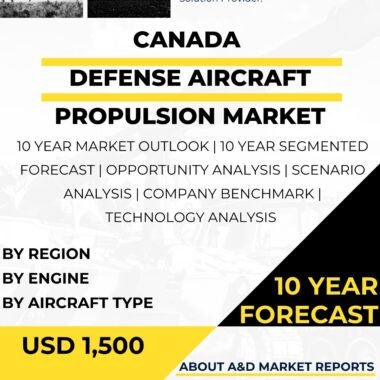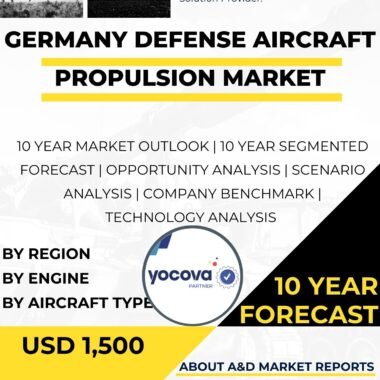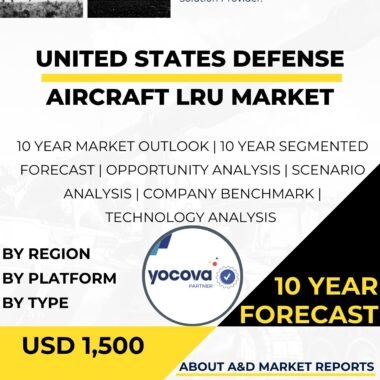Description
Overview of France’s Defense Heads-Up Display Technology
France Defense Heads up technology represents a key pillar of the nation’s modern military capabilities. It significantly enhances situational awareness, reaction speed, and mission effectiveness across multiple domains. HUD systems project critical information directly into the operator’s line of sight, which reduces distraction and cognitive load. As a result, personnel can focus on their surroundings while still accessing vital operational data. This capability is especially important in high-speed and high-risk environments. Therefore, HUD technology has become indispensable in modern warfare.
Core Functionality and Operational Benefits of HUDs
Heads-Up Displays are designed to present essential information without forcing operators to look away from their primary field of view. This includes flight data, targeting cues, sensor inputs, and system alerts. Consequently, decision-making becomes faster and more accurate. In addition, HUDs reduce reaction time during critical moments. By minimizing head-down time, they improve both safety and efficiency. Hence, HUDs directly contribute to mission success and survivability.
Application of HUD Technology in Military Aviation
One of the primary applications of HUD technology in France’s defense sector is military aviation. French fighter aircraft, such as the Dassault Rafale and the Eurofighter Typhoon, rely heavily on advanced HUD systems. These displays provide real-time flight parameters, navigation data, and system status information. As pilots operate in demanding environments, HUDs help maintain constant situational awareness. Moreover, they support precise aircraft control during complex maneuvers.
Enhancing Pilot Performance During High-Intensity Missions
HUDs are especially valuable during high-speed and high-G flight conditions. They allow pilots to monitor critical data without diverting attention from the external environment. As a result, pilots can respond more effectively to rapidly changing threats. In addition, HUDs support safer operation during takeoff, landing, and combat scenarios. This continuous access to information improves confidence and reduces fatigue. Therefore, HUDs play a vital role in pilot performance and mission execution.
Role of HUDs in Air-to-Air and Air-to-Ground Combat
In combat operations, HUD technology provides a decisive advantage. Targeting data, radar tracks, and weapon status are overlaid directly onto the pilot’s view. Consequently, threat assessment becomes quicker and more intuitive. The integration of HUDs with helmet-mounted display systems further enhances combat effectiveness. Pilots can cue weapons and track targets using natural head movements. This capability increases engagement speed and tactical flexibility.
Integration with Helmet-Mounted Display Systems
The combination of HUDs and helmet-mounted displays creates a seamless combat interface. This integration allows pilots to maintain visual contact with targets while receiving targeting cues. As a result, pilots can engage enemies beyond the aircraft’s forward axis. Additionally, this system improves survivability in close combat situations. Therefore, HUD and helmet integration is a cornerstone of modern aerial warfare.
Use of HUD Technology in Other Military Aircraft
Beyond fighter jets, HUD technology is widely used in transport aircraft, helicopters, and reconnaissance platforms. In transport aircraft, HUDs assist during low-visibility operations and precision landings. Similarly, helicopters rely on HUDs for navigation in complex terrain and adverse weather. These systems enhance safety during troop transport and special missions. Thus, HUDs support a broad range of aviation roles.
HUDs in Helicopter and UAV Operations
In helicopter operations, HUDs provide critical flight and mission data during low-altitude maneuvers. This is particularly important in urban or mountainous environments. Additionally, reconnaissance drones benefit from HUD-derived interfaces at control stations. These interfaces help operators interpret sensor data efficiently. Consequently, mission accuracy and situational awareness are improved.
Ground-Based Military Applications of HUD Technology
HUD technology is also integrated into ground-based military platforms. In armored vehicles, HUDs provide commanders and crews with tactical data and system status information. This data is projected onto windshields or viewing panels. As a result, crews gain an augmented view of the battlefield. Faster decision-making becomes possible even in high-threat environments.
Improving Situational Awareness in Armored Vehicles
By overlaying targeting and navigation data, HUDs reduce the need for crews to rely on multiple displays. This consolidation improves coordination and reaction time. Furthermore, it enhances crew survivability during combat. As threats emerge rapidly, real-time visual data becomes essential. Therefore, HUDs significantly improve ground combat effectiveness.
HUD Technology for Dismounted Soldiers
For dismounted soldiers, HUDs are integrated into helmets or smart goggles. These systems provide access to maps, GPS data, and tactical updates. Consequently, soldiers can maintain awareness while moving through hostile environments. HUDs also support coordinated operations between units. This leads to improved communication and mission synchronization.
Enhancing Soldier Mobility and Coordination
HUDs allow soldiers to receive mission updates without stopping or using handheld devices. This capability is crucial during fast-paced operations. In addition, it reduces cognitive overload and improves focus. As a result, soldiers can respond more effectively to threats. Therefore, HUDs enhance both individual and unit-level performance.
Research and Development in HUD Technologies
France continues to invest heavily in HUD research and development. Defense companies and academic institutions collaborate closely on innovation. These efforts focus on improving display clarity, data fusion, and system reliability. Additionally, emerging sensor technologies are integrated into HUD platforms. This ensures systems remain adaptable to future requirements.
International Collaboration and Technology Sharing
France also benefits from international cooperation in HUD development. Through partnerships with allied nations, France exchanges expertise and best practices. This collaboration accelerates technological advancement and standardization. As a result, interoperability in joint operations is improved. Such cooperation strengthens collective defense capabilities.
Cybersecurity Considerations in HUD Systems
As HUDs are connected to broader communication networks, cybersecurity is a major concern. Protecting these systems from cyber threats is essential for operational integrity. France implements robust encryption and secure architectures. Regular testing and updates further reduce vulnerabilities. Consequently, HUD systems remain reliable and secure in contested environments.
Civilian Applications of French HUD Technologies
Beyond defense, French HUD innovations extend into civilian sectors. In civil aviation, HUDs assist pilots during low-visibility operations and landings. Similarly, the automotive industry uses HUDs to improve driving safety. In healthcare, HUDs support surgeons by displaying critical data during procedures. These applications highlight the versatility of HUD technology.
Conclusion on France’s Defense HUD Capabilities
France’s Defense Heads-Up Display technology plays a vital role in modern military operations. Across air, land, and individual soldier systems, HUDs enhance awareness and responsiveness. Continuous investment in research and collaboration ensures technological leadership. At the same time, strong cybersecurity measures protect system integrity. Overall, France remains at the forefront of HUD innovation, prepared to meet the evolving demands of modern warfare.




